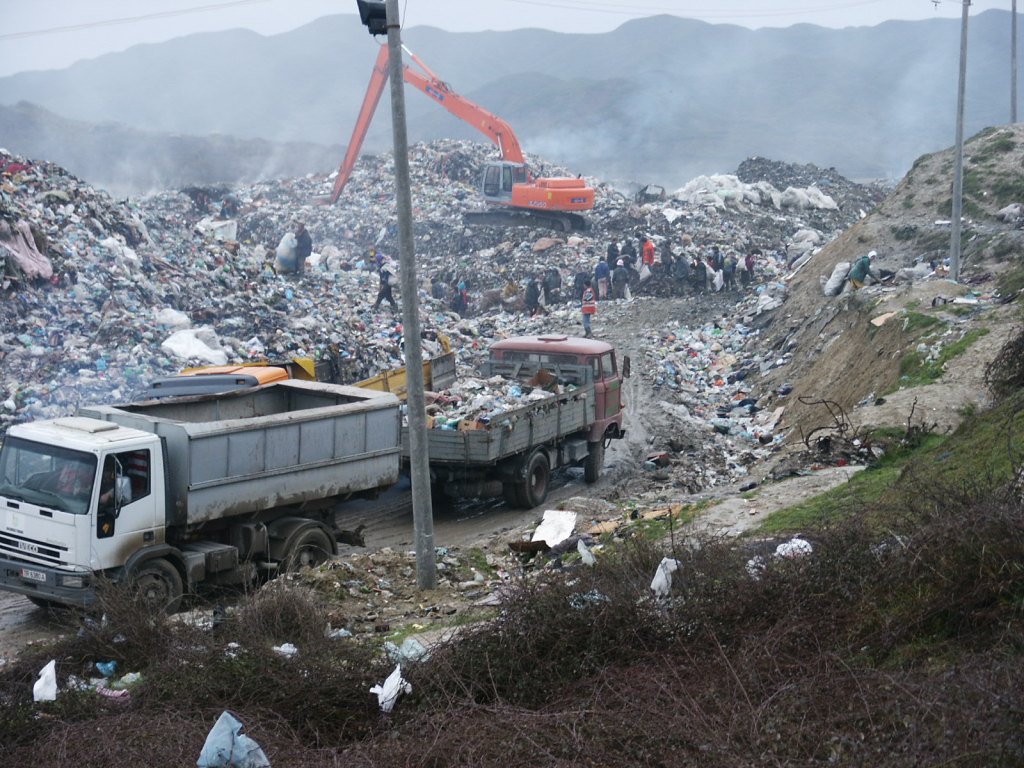
The Rama government has decided to allow the construction of another incinerator, a power plant that burns urban waste of the Tirana region. Just like before, the waste burning plant will be granted through a concession, or a public–private partnership, that will create yet another monopoly on the Albanian market place.
The company Integrated Energy B.V. is government’s preferred company for the thirty-year concession, at a value of €140 million.
In May 2016, before it was officially registered as a company in the Netherlands, Integrated Energy presented an unrequested proposition at the Ministry of Energy. After an evaluation of the proposition, the government decided to open a tender procedure for this project.
On December 7, 2016, the government approved a Decision (VKM) that gives the company a bonus of 8% of the available points in the tender bidding process. This decision obviously gives Integrated Energy an advantage other companies which may want to compete for the concession.
According to the report of the Ministry of Environment that accompanies the above-mentioned VKM, Integrated Energy will offer a public service that is paid directly by the state, through the sale of electrical energy produced through the burning of waste to the Albanian Electro-Energy Corporation (KESh), the sale of recyclable materials, and through direct payment by the municipalities in the Tirana region through as yet unspecified tariffs.
The VKM further clarifies that
Because we are dealing here with an act that has an individual character and this is a draft decision and not a law, the proposal has not passed through a public consultation process.
So it seems that the Albanian government has found a way not only to keep costs for the Albanian tax payer for the next thirty years hidden by using a concession. It uses the same dubious construction ato keep a potentially environmentally harmful project secret in order to avoid public consultations, which is in fact a legal duty originating in the Aarhus Convention, which mandates such consultations for project affecting the environment.
Integrated Energy B.V.
The company Integrated Energy B.V. has been registered in the Netherlands on August 19, 2016. Its activities are described as “developing any activity in the field of waste processing, energy production, and similar activities, both locally and financially, as well as holding and financing activities.”
Exit contacted the official phone number listed in the registration, and was answered by administration company FGG Nederland, which denied that Integrated Energy was one of their clients.
The newly registered company has a starting capital of €50,000 and no employees. On its board of directors we find Klodian Zoto, the owner of the company, and business partner Ernesto Granelli, an engineer at Energy Recuperator SpA.
Klodian Zoto is also the sole owner of Integrated Technology Services, which is developing a similar waste-run power plant near Fier, against the protests of the inhabitants and in absence of any public consultations regarding the project.
In the board of Integrated Energy we further find Thomas Walter Hansmann, who is also director of Paul Wurth India Private Ltd., Hans Wallage, a “proxy-holder of ANT Management” who holds “various management positions in Dutch special purpose companies.” Finally, there are Theo Spijkerman and Arnaud van der Werf, both working at SGG Group, a “multi-jurisdictional provider of financial services” with experience in setting up trusts, often used to evade taxes.
In December 2014, the UK Serious Fraud Office (SFO) started an investigation into SGG, after it “had missold supposed investments into green biofuel tree plantations in Cambodia. […] The total value of the fraud was approximately £23 million.” Beside this giant fraud, the SFO found that “a third party agent had bribed a director [of SGG] to produce false sales invoices which entitled the agent to a huge commission on investors’ funds.” The convictions against SGG was the first convictions ever under the UK Bribery Act from 2010.


